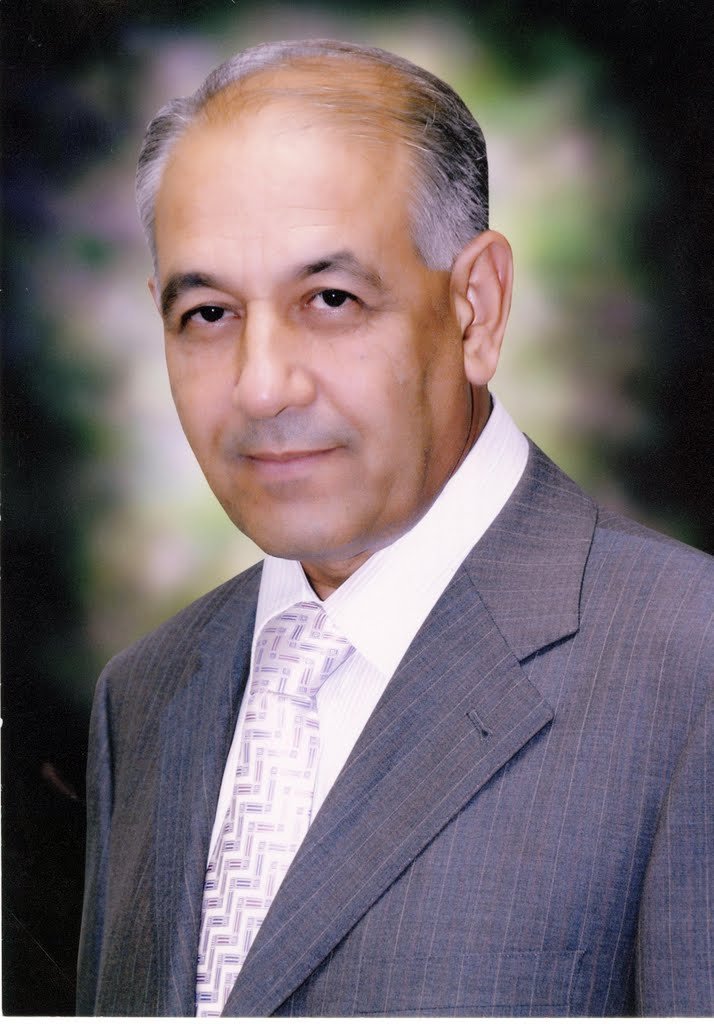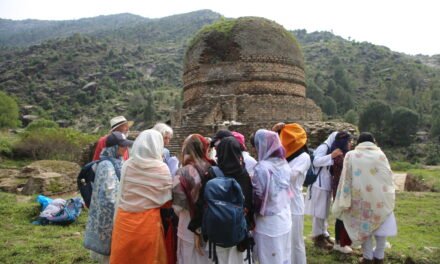Dr. Ifqut Shaheen
It has always been owing to passionate and spirited professionals that archaeology turns into a great romance. Both the growth as well as future of the discipline largely predicate on the presence of such scholars. In the context of Pakistan, name of Prof. Muhammad Ashraf Khan, after Prof. A.H. Dani, is of great significance.
Born in 1956, Prof. Ashraf Khan received his master’s degree in archaeology in 1979 from the University of Peshawar. Shortly afterward, he joined the Federal Department of Archaeology and Museums (DOAM). During his initial years of service, he was able to get PhD in Gandharan studies from the University LaSorbonne-Paris 1, France.
After serving in various positions in DOAM, Dr. Khan joined Quaid-i-Azam University (QAU), Islamabad, as professor in 2009. Simultaneously, he started to lead Taxila Institute of Asian Civilizations (TIAC), QAU, as a director and retired from the same position in May 2016.
The whole length of Dr Ashraf Khan’s career in the service of Government of Pakistan spreads over 36 years. His story is the story of great success, and can be clearly judged from his academic performance and scholarly achievements.
Dr. Khan is one of the protagonists in the field of Pakistani archaeology and ancient history. The story of exploration, excavation and conservation in the field of Pakistani archaeology, without his mention, remains incomplete. Similarly, his services in relation to teaching in archaeology and heritage will always be remembered.
The story of his explorations and excavations begins right from the days of his studentship. He participated in archaeological excavations at Rehman-dherai (D.I. Khan), Tarakai-qila (Bannu), Baghrajai and Mathanai (Chakdara) in 1979. In 1988, he attended excavations in France and Italy. However, it was on his return from France, after completing his PhD, that Ashraf Khan began absorbing himself into serious scholarly pursuits.
During his curatorship of the Swat Museum, 1991-94, a number of Buddhist archaeological sites such as the now-extinct Malam-jaba stupa, Baligram stupa, Dadahara, and Gumbatuna sites were excavated and reports were published. Besides the excavation work, Ashraf Khan also led explorations in the Swat valley. He revisited the already known sites to get updates about their present state and also discovered potential new sites, including settlements, sacred complexes and, most importantly, rock carvings. Since the turn of the present century, Dr. Khan has been busy in making new additions to the archaeology of Taxila.
Bhir-mound, Jinna Wali-dheri and Badalpur are the sites that made Dr. Ashraf make his mark in the field of Taxila archeological studies, including Gandharan archaeology and art. Besides excavations, he has also worked in archaeological conservation at sites of Sirkap, Jinna Wali-dheri and Badalpur at Taxila, the Attock Tomb, Rawat Fort and Lalarukh and Hakim Tombs at Hasan Abdal.
His authentic archaeological researches enabled him to share his works with scholarly community within Pakistan and abroad.
He participated in several conferences in different foreign countries including USA, France, South Korea, Austria, Turkey, Uzbekistan, Afghanistan, Nepal. Besides sharing research with his colleagues from across the world his papers were also published in some prestigious international journals.
One of his research articles about the discovery of rock carvings at Manai-tangai in Dir district was published in the famous East and West, an English language quarterly published by IsMEO, Italy in 1994. The article is still considered a real contribution to the study of the rock art landscape in the extended areas of Swat valley, Gilgit-Baltistan, Laddakh and Kashmir.
Similarly, his another paper, co-authored by Faccenna and Robert Gobl, also appeared in the same journal in the year 1993. A big collection of coins, discovered from the Buddhist sacred sites of Butkara 1 and Saidu Sharif, on which in-depth study carried out. His research articles were published in journals issued from Japan, France and South Korea.
Dr. Ashraf Khan is among those few Pakistani archaeologists whose research papers made prominent place in the South Asian Archaeology, a world-wide prestigiously known biannual conference, being held since 1970s by the European Association of South Asian Archaeology and Art.
In addition to numerous research articles, Dr. Ashraf is also author of many books. Some of them are: Buddhists Shrines in Swat (1993), Gandhara: Geography, Antiquity, Art and Personalities (2004), A Catalogue of the Gandhara Stone Sculptures in the Taxila Museum (co-authored, 2005), Crafts of Taxila (co-authored with this author, 2015). Importantly, his works are popular and has the power to fascinate experts as well as general public.
One of his landmark deeds was introducing Masters in Archaeology in Qaid-i-Azam University, Islamabad, and it was he who launched MPhil and PhD programmes in Asian Studies when he was the director.
In short, Dr. Ashraf Khan is a well-known name in the field of Pakistani archaeology, both within the country and abroad. Having spent major part of his career in the field archaeology, he knows well the cultural resources of the country and its significance in relation to socio-cultural development and economic growth.





